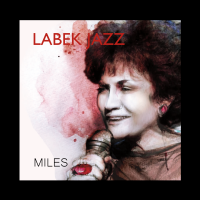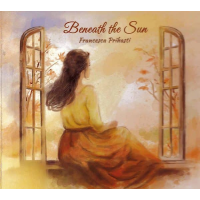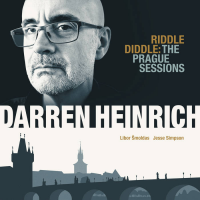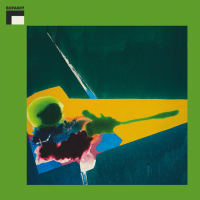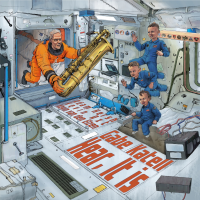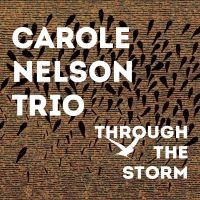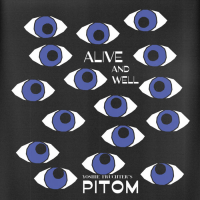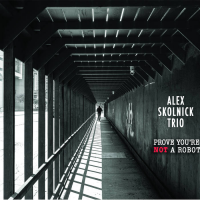Home » Jazz Articles » Album Review » Colin Hinton: Simulacra
Colin Hinton: Simulacra
While the liners allude to the inspiration from composers such as Alexander Scriabin and Morton Feldman, they also reference jazz-related luminaries such as Tyshawn Sorey, Ingrid Laubrock, Anthony Braxton and Muhal Richard Abrams. What distinguishes that last cohort is a refusal to be pigeonholed. Hinton's writing often recalls the perplexing synthesis between charts and freedom achieved by his erstwhile teacher Laubrock's Antihouse. Nowhere more so than in the intricate unison atop a snappy beat of the final "Slab Warmth," a piece in which Hinton draws on ideas he found in Braxton's music.
Before that point, each piece comes rammed with multiple themes and events. The longest track at over 18 minutes, "Obversify" begins with an annunciatory shimmer, then delicate pointillism from Edward Gavitt's guitar and Shawn Lovato's bass, before molasses-slow long tones from the reeds of Anna Webber and Yuma Uesaka. Next Webber's coolly etched flute line heralds another crescendo and a series of incisive gestures before Uesaka takes off on a piping clarinet excursion. That's only the start. Here and throughout, written material emerges seemingly from nowhere, only to dissipate as quickly as it arrives.
Ample opportunities for individual expression arise as integral parts of the scripted frameworks, such as when Webber's fluttering and swooping flute provides one of the highlights of the lengthy angular "What Was." And not only individual. An extended Webber tenor solo becomes a bickering duet as Uesaka connects, on the opener, and on "Synesthopy (intro)" Webber's bass flute and Uesaka's bass clarinet combine once more in an a capella breathy chatter which leads to a stately progression preceding the main action.
The whole time Hinton steers, accents and colors without bombast, moving between choppy pulse, staggered grooves and punchy riffs, as the ensemble touches on jazz, chamber, rock, improv and contemporary. That all this succeeds without a hint of pastiche vouchsafes that Hinton has a clear vision, and even more importantly the flair to realize it.
Track Listing
Obversify; Synesthopy (intro); Synesthopy; What Was; Breath; Slab Warmth.
Personnel
Colin Hinton
drumsAnna Webber
saxophone, tenorYuma Uesaka
saxophone, altoEdward Gavitt
guitarShawn Lovato
bass, acousticAdditional Instrumentation
Anna Webber: tenor saxophone, flute, bass flute; Yuma Uesaka: tenor saxophone, clarinet, bass clarinet, contralto clarinet; Edward Gavitt: electric and acoustic guitar; Shawn Lovato: bass; Colin Hinton: drums, percussion, glockenspiel, gongs.
Album information
Title: Simulacra | Year Released: 2020 | Record Label: Panoramic
Tags
PREVIOUS / NEXT
Support All About Jazz
 All About Jazz has been a pillar of jazz since 1995, championing it as an art form and, more importantly, supporting the musicians who make it. Our enduring commitment has made "AAJ" one of the most culturally important websites of its kind, read by hundreds of thousands of fans, musicians and industry figures every month.
All About Jazz has been a pillar of jazz since 1995, championing it as an art form and, more importantly, supporting the musicians who make it. Our enduring commitment has made "AAJ" one of the most culturally important websites of its kind, read by hundreds of thousands of fans, musicians and industry figures every month.












